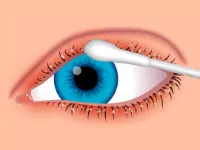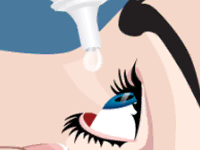| Monday & Wednesday | 7:30 a.m. - 4:00 p.m. |
| Tuesday & Thursday | 8:00 a.m - 5:00 p.m. |
| Friday | 8:00 a.m. - 4:00 p.m. |
Hours subject to change
The experienced physicians at Eye Care Specialists provide comprehensive vision health services to all ages. Call 509-758-8811 or request an appointment .
Adult & Pediatric Screening Exams

About an hour of your time once a year can make all the difference when it comes to your eye health. An eye examination is not just a way to update your glasses or contact prescription; it is also a way to diagnose more serious disorders or diseases. This can include glaucoma, cataracts, high blood pressure, diabetes, and more. Most adults, and almost a quarter of all children, require some form of vision correction. For children, poor vision could result in inferior school performance, difficulty paying attention, difficulty in reading or writing, and even headaches. Children learn best when they see their best. For any age, the eye may be prone to diseases that may be easily treatable if they are found.
Diabetic Eye Exam
Did you know that it is possible to catch early signs of diabetes through regular eye exams, and that diabetes can affect your vision? Diabetic retinopathy can be detected during an eye exam by an ophthalmologist. An exam by your primary doctor, during which your eyes are not dilated, is not an adequate substitute for a full exam done by an eye care professional. People who have diabetes are also at increased risk for other eye diseases, including glaucoma and cataracts. Regular eye exams can help detect these diseases early and prevent or delay vision loss.
Small Incision Cataract Surgery
A cataract is a clouding of the natural lens inside the eye. Cataracts develop as part of the natural aging process of the eye. However, cataract development can be caused by or be sped up by previous eye surgery, injury, certain diseases, and even some medications. Cataract development usually does not harm the eye but causes blurry vision.
Cataracts usually progress slowly over a period of years and in early stages stronger eyeglasses or brighter light may help. As cataracts progress and the lens becomes more cloudy, patients often experience symptoms such as: painless blurry vision, glare, haloes around lights at night, double vision in one eye, need for bright light to read, wavy or distorted vision and fading or yellowing of colors.
- How is a Cataract Treated? – Surgery is the only way a cataract can be treated. No medications, dietary supplements, or exercises have been shown to prevent or cure cataracts.
Learn about Cataract Surgery
Modern cataract surgery is highly successful with over 99% of patients regaining useful sight. Cataract surgery is performed as an outpatient surgery under local or topical anesthesia. Upon arriving at the surgery center, drops will be placed in your eye to dilate your pupil and an IV will be placed to administer a light sedative. The skin around your eye will be cleansed and a sterile drape will be placed. Under an operating microscope, the surgeon will make a small incision and insert an ultrasound-driven instrument that breaks up the cataract as the pieces are suctioned (aspirated) out of the eye. This technique is called phacoemulsification.
Then a small foldable artificial lens (intraocular lens, or IOL) is placed inside the eye. Today there are options for patients to consider in deciding on which intraocular lens is right for you. The choice of which intraocular lens is appropriate for you depends on several things like the health of your eyes, any other eye conditions you may have, and your desire to decrease your dependency on glasses.
Trauma Eye Care
Eye trauma may also affect adjacent tissue and bone structures. Our doctors are local surgeons and always on call for emergency eye trauma. From sports, to household accidents, to work place injuries, there are many hazards that could affect your vision (especially if not wearing proper eye safety equipment).
Comprehensive Treatment of Diseases and Conditions
Glaucoma

The physicians at Eye Care Specialists have many treatment options for those with glaucoma, including medication, surgery and laser surgery options. In fact, our surgeons are proud to be certified in the placement of the iStent, the smallest implantable device ever approved by the FDA, OMNI, ECP, and SLT laser.
It is estimated that three million Americans have glaucoma, but only about half know they do. Glaucoma is a leading cause of blindness for people over 60 years old. But blindness from glaucoma can often be prevented with early treatment. When glaucoma develops, usually you don’t have any early symptoms and the disease progresses slowly. In this way, glaucoma can steal your sight very gradually. Fortunately, early detection and treatment (with glaucoma eye drops, glaucoma surgery or both) can help preserve your vision.
Macular Degeneration

With macular degeneration, you may have symptoms such as blurriness, dark areas, and wavy or distorted vision in your central vision, and perhaps permanent loss of your central vision. It usually does not affect your side, or peripheral vision. For example, with advanced macular degeneration, you could see the outline of a clock, yet may not be able to see the hands of the clock to tell what time it is.
If you are experiencing any symptoms of macular degeneration, such as blurred/hazy or any loss of vision, it is important to schedule with your eye doctor as soon as possible. Macular degeneration can be classified as wet or dry. Unfortunately, at this time there is no single proven treatment for the dry form of macular degeneration, but it is still best to consult with your eye care professional. Wet macular degeneration, on the other hand, may be effectively treated with drugs such as Avastin or Eylea. Our doctors can administer these medications right here in Clarkston, so there is no need to travel for your treatments.
Blepharitis

Blepharitis is a common and ongoing condition where the eyelids become inflamed (swollen), with oily particles and bacteria coating the eyelid margin near the base of the eyelashes. This annoying condition causes irritation, itchiness, redness, and stinging or burning of the eyes. While the underlying causes of blepharitis aren't completely understood, it can be associated with a bacterial eye infection, symptoms of dry eyes or certain types of skin conditions such as acne rosacea.
In many cases, simply applying a warm compress or scrubbing the eyelid with a clean, warm washcloth will relieve the symptoms associated with blepharitis. Occasionally other treatments are necessary and your doctor may prescribe medications such as an antibiotic ointment.
Dry Eye / Chronic Dry Eye

Sometimes people don't produce enough tears or the right quality of tears to keep their eyes healthy and comfortable. This condition is known as dry eye. Many medications, hormonal changes, or climate conditions can affect your eyes ability to make tears. In most cases, good quality preservative-free eye drops will alleviate the bothersome symptoms of dry-eye. If you are using artificial tears more than a few times a day, it is a good idea to consult with an eye doctor.

